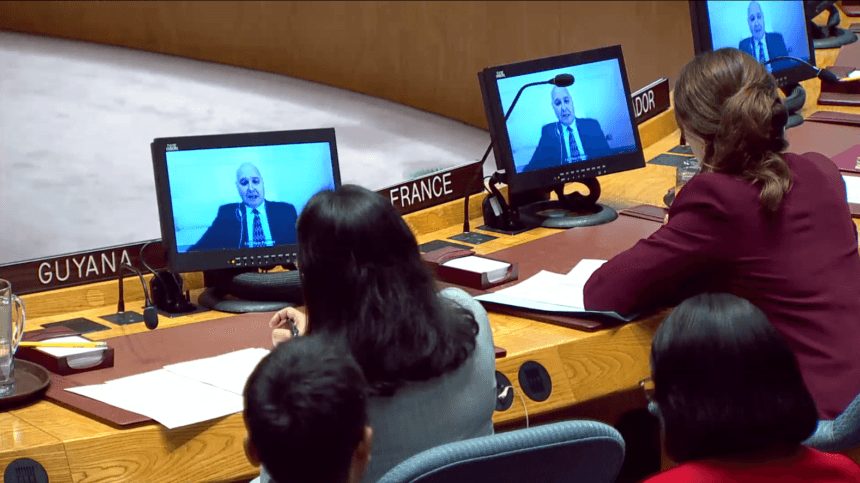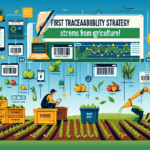Main Points In Hindi (मुख्य बातें – हिंदी में)
-
खाद्य सुरक्षा संकट: उत्तरी गाजा में खाद्य सुरक्षा की स्थिति गंभीर है, और हालिया अध्ययनों के अनुसार, क्षेत्र में अकाल का खतरा बहुत अधिक है, जिससे हजारों लोग प्रभावित हो रहे हैं।
-
संघर्ष का प्रभाव: बढ़ते संघर्ष के कारण लोग भूख से मर रहे हैं, और मानवीय संगठनों को सहायता पहुंचाने में रुकावट आ रही है, जो संक्रमणकालीन स्थिति को और अधिक विकट बना रहा है।
-
कृषि-खाद्य प्रणालियों का नुकसान: गाजा की कृषि-खाद्य प्रणालियाँ पूरी तरह ध्वस्त हो गई हैं, जिससे खाद्य उत्पादन में भारी गिरावट आई है, फल और मवेशियों की हानि हुई है, जो लोगों की आजीविका और पोषण पर नकारात्मक प्रभाव डाल रही है।
-
अंतर्राष्ट्रीय सहयोग की आवश्यकता: एफएओ के निदेशक ने अंतर्राष्ट्रीय समुदाय से तात्कालिक राजनयिक प्रयासों का आह्वान किया है ताकि खाद्य असुरक्षा और अकाल के खतरे को संबोधित किया जा सके और मानवीय सहायता वितरण में रुकावटों को दूर किया जा सके।
- युद्धविराम की मांग: पॉलसेन ने युद्धविराम की आवश्यकता पर जोर दिया है, यह कहते हुए कि जीवनरक्षक सहायता के लिए तत्काल और सुरक्षित पहुंच आवश्यक है।
Main Points In English(मुख्य बातें – अंग्रेज़ी में)
Here are the main points from the provided text:
-
Severe Food Insecurity in Northern Gaza: The director of FAO’s emergency and resilience office, Rein Paulsen, highlighted the alarming food security situation in Northern Gaza, with strong indications of famine or impending famine as identified by an independent review committee.
-
Impact of Escalating Conflict: The ongoing conflict has intensified, affecting essential supplies and leading to a significant increase in food insecurity. Estimates show that around 133,000 people are facing catastrophic food insecurity, with the risk of famine looming between November 2024 and April 2025.
-
The Humanitarian Crisis: Paulsen emphasized that people are effectively dying from hunger due to the conflict, which is obstructing humanitarian organizations’ ability to provide assistance. He urged for immediate diplomatic efforts to address conflict-induced food insecurity in Gaza.
-
Destruction of Agricultural Systems: Agricultural systems in Gaza have collapsed, with approximately 70% of crop land destroyed and significant losses in livestock. This has severely limited access to vital sources of protein and milk, exacerbating the food crisis.
- Call for Immediate Action: There is an urgent need for unrestricted humanitarian access to save lives and prevent famine, along with a call for a ceasefire to allow for humanitarian efforts and support local food production to mitigate the crisis.


Complete News In Hindi(पूरी खबर – हिंदी में)
न्यूयॉर्क/रोम – एफएओ के आपातकालीन और लचीलेपन कार्यालय के निदेशक रीन पॉलसेन ने मंगलवार को संयुक्त राष्ट्र सुरक्षा परिषद को अपने संबोधन में कहा, उत्तरी गाजा में खाद्य सुरक्षा की स्थिति गंभीर है और नवीनतम संकेत बेहद परेशान करने वाले हैं।
पिछले शुक्रवार, स्वतंत्र अकाल समीक्षा समिति ने पाया इस बात की प्रबल संभावना है कि उत्तरी गाजा पट्टी के भीतर के क्षेत्रों में अकाल पड़ रहा है या आसन्न है।
पॉलसेन ने नवीनतम अनुमानों की ओर इशारा करते हुए कहा, “संघर्ष तेज हो गया है, और नागरिक अस्तित्व के लिए अपरिहार्य वस्तुओं को भी नुकसान पहुंचा है।”
पहले से ही अक्टूबर में, एकीकृत खाद्य सुरक्षा चरण वर्गीकरण (आईपीसी) से पता चला कि लगभग 133,000 लोगों को विनाशकारी खाद्य असुरक्षा (आईपीसी चरण 5) का सामना करना पड़ा और नवंबर 2024 और अप्रैल 2025 के बीच पूरे गाजा पट्टी में अकाल का खतरा था।
पॉलसेन ने इस बात पर जोर देते हुए कहा कि संघर्ष बढ़ने के कारण पुरुष, महिलाएं, लड़के और लड़कियां प्रभावी रूप से भूख से मर रहे हैं, मानवीय संगठनों को जरूरतमंद लोगों तक सहायता पहुंचाने से रोक दिया गया है, पॉलसेन ने इस बात पर जोर देते हुए कहा कि लोगों के जीवन को बचाने के लिए अवसर की खिड़की अभी है – कल बहुत देर हो जाएगी।
उन्होंने आगे कहा, “जब तक अकाल की घोषणा की गई है, लोग पहले से ही भूख से मर रहे हैं, जिसके अपरिवर्तनीय परिणाम पीढ़ियों तक रह सकते हैं।”
इस उद्देश्य से, पॉलसेन ने गाजा पट्टी में अकाल सहित संघर्ष-प्रेरित खाद्य असुरक्षा को संबोधित करने के लिए अंतर्राष्ट्रीय समुदाय से तत्काल राजनयिक प्रयासों का आह्वान किया। उन्होंने परिषद के सदस्यों से आग्रह किया कि वे संघर्ष के सभी पक्षों को मानवीय सहायता के वितरण के लिए महत्वपूर्ण नागरिक बुनियादी ढांचे की रक्षा करने और सशस्त्र संघर्ष की स्थितियों में कृषि खाद्य प्रणालियों और बाजारों के उचित कामकाज को सुनिश्चित करने की उनकी जिम्मेदारी की याद दिलाएं।
कृषि-खाद्य प्रणालियों का पतन
कृषि-खाद्य प्रणालियाँ ध्वस्त हो गई हैं, और पूरे गाजा में स्थानीय खाद्य उत्पादन नष्ट हो गया है। के अनुसार FAO-UNOSAT गाजा में नवीनतम भू-स्थानिक विश्लेषणलगभग 70 प्रतिशत फसल भूमि – जो दैनिक खपत में एक तिहाई तक योगदान करती थी – नष्ट हो गई है; 70 प्रतिशत से अधिक जैतून के पेड़ और बगीचे जलकर नष्ट हो गए हैं; कृषि का बुनियादी ढांचा नष्ट हो गया है; और 95 प्रतिशत मवेशी और आधे से अधिक भेड़ और बकरियों के झुंड मर गए हैं।
पशुओं की इन हानियों ने प्रोटीन और दूध के महत्वपूर्ण और पौष्टिक स्रोतों तक पहुंच को समाप्त कर दिया है और साथ ही लोगों की आजीविका को भी तबाह कर दिया है।
इसके अलावा, पूरे गाजा पट्टी में खाद्य आपूर्ति तेजी से खराब हो गई है, जबकि भोजन की उपलब्धता अब तक के सबसे निचले स्तर पर है।
पॉलसेन ने जहां संभव हो स्थानीय खाद्य उत्पादन को सक्षम करने और शेष पशुधन को जीवित और उत्पादक बनाए रखने के लिए अतिरिक्त समर्थन के माध्यम से गाजा पट्टी में अकाल का जवाब देने और इसके प्रसार को रोकने के लिए अपने प्रयासों को और बढ़ाने के लिए एफएओ की प्रतिबद्धता दोहराई।
“ज़रूरतमंद लोगों तक तत्काल और असीमित, सुरक्षित पहुंच जीवन बचाने और अकाल को रोकने के लिए अपरिहार्य है। युद्धविराम की तत्काल आवश्यकता है,” उन्होंने निष्कर्ष निकाला।
Complete News In English(पूरी खबर – अंग्रेज़ी में)
New York/Rome – In a speech to the United Nations Security Council on Tuesday, Rein Paulsen, the Director of FAO’s Emergency and Resilience Office, highlighted that the food security situation in northern Gaza is critical, with the latest indicators being very alarming.
Last Friday, an independent famine review committee found a strong possibility that regions within northern Gaza are experiencing or are about to experience famine.
Paulsen pointed out that “the conflict has intensified, and even essential items for civilian survival have been disrupted.”
In October, the Integrated Food Security Phase Classification (IPC) reported that about 133,000 people are facing catastrophic food insecurity (IPC Phase 5), and there is a risk of famine in the entire Gaza Strip between November 2024 and April 2025.
Paulsen emphasized that due to the escalating conflict, men, women, boys, and girls are effectively dying from hunger. Humanitarian organizations have been hindered from providing aid to those in need. He stressed that there is still a window of opportunity to save lives – tomorrow may be too late.
He further stated, “Even before an official famine declaration, people are already dying from hunger, with irreversible consequences that could last for generations.”
To address this, Paulsen called for immediate diplomatic efforts from the international community to tackle food insecurity caused by the conflict, including famine in Gaza. He urged council members to remind all parties in the conflict of their responsibility to protect essential civilian infrastructure and ensure the proper functioning of agricultural food systems and markets in armed conflict situations.
Collapse of Agricultural-Food Systems
Agricultural-food systems have collapsed, and local food production has been devastated across Gaza. According to the FAO-UNOSAT latest geospatial analysis in Gaza, nearly 70% of crop land, which contributed one-third to daily consumption, has been destroyed; over 70% of olive trees and orchards have been burnt down; agricultural infrastructure has been ruined; and 95% of livestock and more than half of sheep and goat herds have died.
These losses have cut off access to vital and nutritious sources of protein and milk, while also devastating people’s livelihoods.
Additionally, the food supply throughout the Gaza Strip is rapidly deteriorating, with food availability at its lowest point ever.
Paulsen reiterated FAO’s commitment to enhance efforts to respond to the famine in Gaza by enabling local food production where possible and ensuring that the remaining livestock are kept healthy and productive.
“Immediate and unrestricted safe access to those in need is essential to save lives and prevent famine. A ceasefire is urgently needed,” he concluded.




